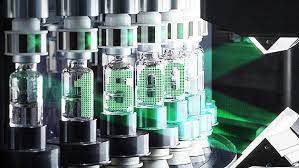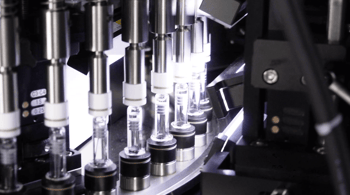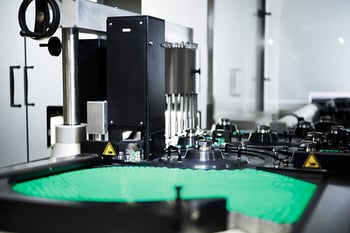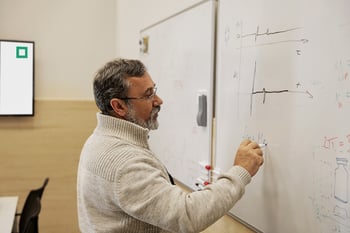When a pharmaceutical company expands its portfolio, its machines have to keep pace while occupying as little additional space as possible. In such cases, flexible equipment that combines multiple functions is an ideal solution. This is exactly what a Korean customer of Syntegon had in mind when looking for a new inspection machine. Despite strong competition, the customer chose Syntegon's AIM 3000 – the first of its kind to conquer the influential Korean pharmaceutical market.
Syntegon's AIM 3000 has stood the test in numerous pharmaceutical manufacturing facilities since its launch. Soon, it will make its first trip to Korea, where a long-term customer of Syntegon has expanded its portfolio to include new aqueous products. The new inspection solution had to meet several requirements at once: inspect both vials and ampoules on one compact machine and perform leak detection in addition to visual inspection.
.jpg?width=600&height=400&name=AIM3_Inspection-turret_Ampoules%20(6).jpg)
Success on professional and personal level
The AIM 3000 won the race mainly due to its unique combination of many functions in one machine. High-resolution CMOS cameras with high-speed interfaces carry out visual particle and cosmetic inspection, while the leak detection module detects cracks using high voltage. The pre-inspection station makes sure that grossly damaged containers are ejected before they enter the inspection carousel. The integrated re-inspection, in turn, reduces the manual effort required in case of a machine stop and ensures a high level of operator friendliness. All process steps are controlled via a common HMI.
On a personal level, important combinations also lead to maximum customer satisfaction: the entire project is accompanied efficiently and comprehensively through a mixture of virtual and on-site presence. The project team, consisting of long-time local sales partner Hakoplan and the Syntegon experts from Crailsheim, makes sure that the cooperation runs smoothly in terms of both language and technology. The AIM 3000 automated visual inspection machine is expected to enter the Korean pharmaceutical market in the end of 2023, where it will inspect up to 400 containers per minute in a compact space.
.jpg?width=600&height=450&name=0_AIM3_Totale-with_HVLD%20(3).jpg)




